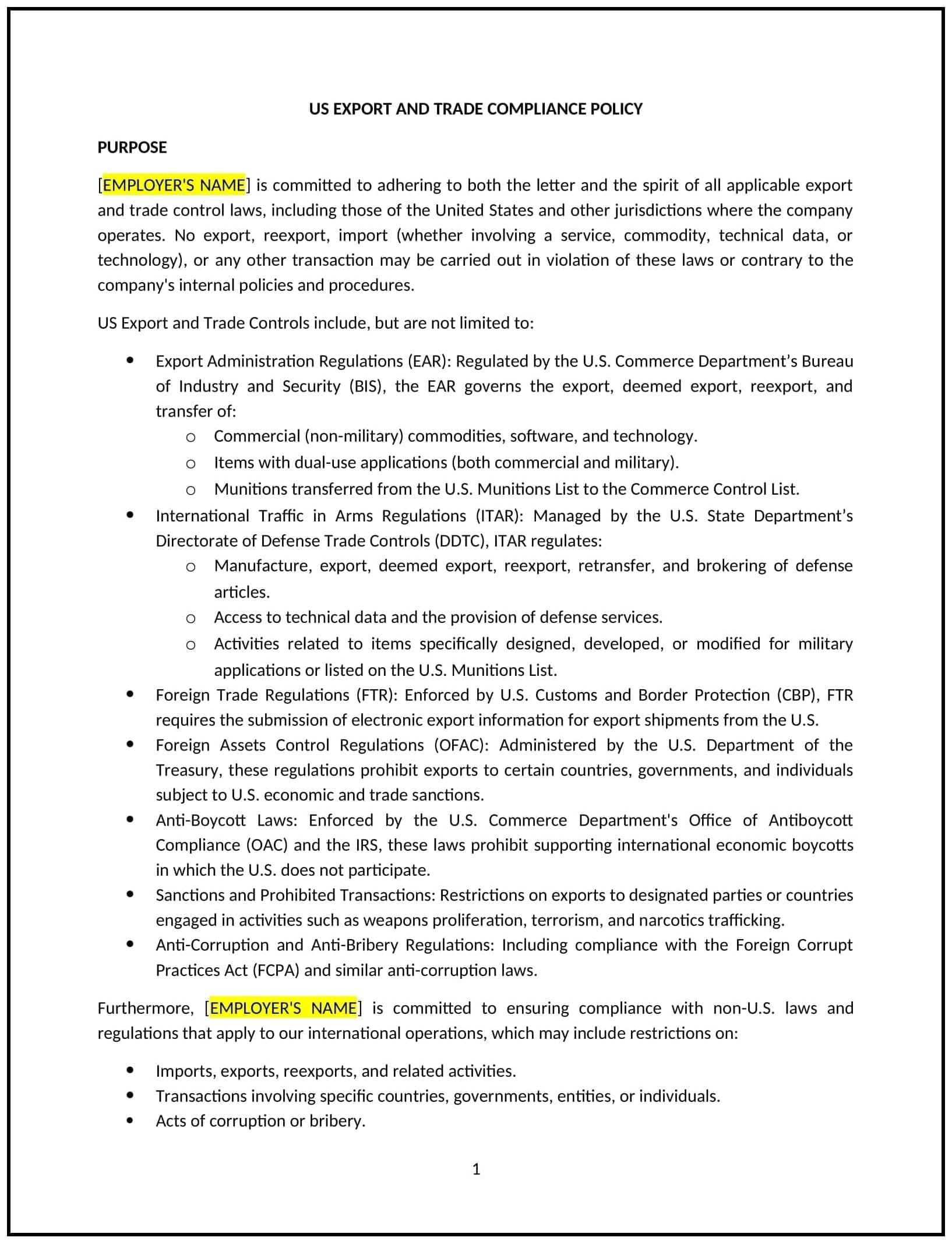US export and trade compliance policy (Pennsylvania): Free template
Got contracts to review? While you're here for policies, let Cobrief make contract review effortless—start your free review now.

Customize this template for free
US export and trade compliance policy (Pennsylvania)
This US export and trade compliance policy is designed to help businesses in Pennsylvania adhere to federal export control regulations, trade restrictions, and Pennsylvania-specific trade practices. By outlining clear procedures for compliance, this template helps businesses mitigate risks, avoid penalties, and maintain ethical standards when conducting international trade.
By using this template, businesses can ensure proper oversight of export activities, safeguard intellectual property, and build trust with international partners.
How to use this US export and trade compliance policy (Pennsylvania)
- Define key compliance areas: Clearly outline the areas covered by the policy, such as export licensing, prohibited transactions, and restricted party screening.
- Include documentation requirements: Specify the records that must be maintained, such as shipping documents, export licenses, and end-use certificates, to meet compliance obligations.
- Outline employee responsibilities: Provide guidance on roles and responsibilities for ensuring compliance with US export and trade laws.
- Address training requirements: Detail the training programs employees must complete to understand compliance procedures and regulatory updates.
- Reflect Pennsylvania-specific considerations: Tailor the policy to include local trade practices or industries that are prevalent in Pennsylvania, such as manufacturing or technology exports.
Benefits of using a US export and trade compliance policy (Pennsylvania)
A well-structured US export and trade compliance policy supports operational integrity and regulatory compliance. Here's how it helps:
- Mitigates legal risks: Reduces the likelihood of fines or penalties by ensuring adherence to export and trade regulations.
- Protects intellectual property: Establishes procedures to safeguard sensitive data and proprietary information during international transactions.
- Builds global trust: Demonstrates the company’s commitment to ethical trade practices, fostering credibility with international partners.
- Supports compliance: Aligns with Pennsylvania and federal regulations to minimize regulatory risks and ensure lawful operations.
- Reflects local needs: Addresses Pennsylvania-specific industries involved in international trade, such as manufacturing, agriculture, and energy.
Tips for using a US export and trade compliance policy (Pennsylvania)
- Communicate the policy: Share the policy with employees and key stakeholders to ensure everyone understands their roles in maintaining compliance.
- Conduct regular audits: Periodically review export processes and documentation to identify and address compliance gaps.
- Use screening tools: Implement tools to screen customers, vendors, and shipments against restricted or denied party lists.
- Provide ongoing training: Offer regular compliance training to employees to keep them updated on regulatory changes and best practices.
- Review periodically: Update the policy to reflect changes in Pennsylvania trade practices, federal export laws, or industry-specific requirements.